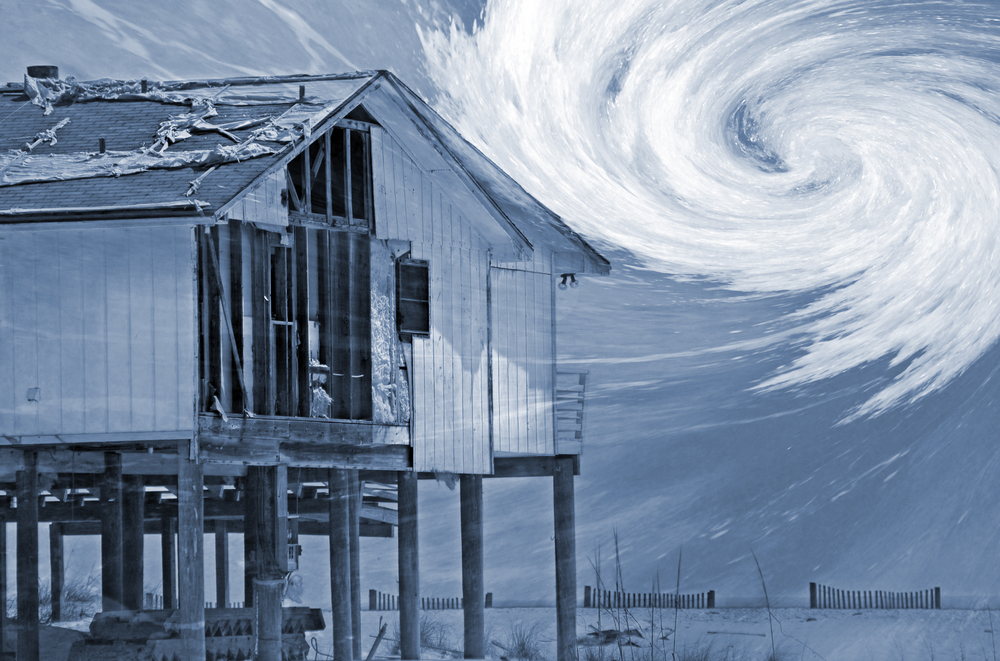Floridians Concerned about Hurricane Season

A recent AAA survey found that Floridians are becoming more concerned about this year’s hurricane season after four major storms have hit in the past three years, the worst of which was a category five storm last year. Recent storms, Florence, Michael, Harvey, Irma and Maria have caused $200 billion in damages according to Floodsmart.gov.
The online survey was conducted from April 3 to 6, 2019 and roughly 400 Florida residents responded. According to the results, a whopping 92 percent said they were worried about the 2019 Hurricane Season. In addition, 19 percent are more concerned about this season than last. Despite all of this worry, the survey found that nearly 25 percent of Florida residents have made zero advance preparations to deal with hurricanes or severe weather.
“If the last few hurricane seasons have taught us anything it’s the importance of being prepared,” said Peter Corrigan, president, Auto Club Insurance Company of Florida in a recent Insurance Journal article. “Although you can’t control the weather, you can take certain precautions to ensure your family and belongings are protected. Storm preparations should include having a storm kit, evacuation plan, and proper insurance coverage, which includes flood insurance.”
Many Florida Residents Ignore Evacuation Warnings
The survey found that if an evacuation was called for, roughly 21 percent would ignore the evacuation warning while 79 percent would heed the warning, but many residents would only leave for a certain type of storm. According to the results, 62 percent said they would only evacuate for a category three hurricane or greater and are staying put for lesser storms.
Here is a breakdown of what type of storm it would take to get Floridan’s to evacuate:
- Category 1 74-95 mph winds 7%
- Category 2 96-110 mph winds 21%
- Category 3 111-129 mph winds 30%
- Category 4 130-156 mph winds 20%
- Category 5 >=157 mph winds 12%
Flooding is a Big Issue
According to AAA, the majority of hurricane damage comes from wind and torrential rain which leads to flooding. Unfortunately, 73 percent of Floridians are not carrying flood insurance. Flood insurance is a separate policy, Florida homeowners insurance does not provide any protection from flood damage.
The survey found that while 73 percent of Florida residents are not carrying flood insurance, 57 percent of Florida residents are “Somewhat” or “Very” concerned about flood damage at their home while 43 percent are “Not at all” concerned about flooding.
Statistics show that flooding is the number one disaster in the U.S. Here are just a few flood statistics from the National Flood Insurance Program
- Homes in low to medium risk areas account for nearly 20 percent of flood claims every year
- One inch of flood water in your home can easily cause $25,000 in damage to your home.
- 19% of Floridians have experienced flooding at their home.
- 21% of Floridians are unaware that homeowner’s insurance does not cover flood damage.
Flood insurance is backed and sold by the National Flood Insurance Program (NFIP) and is also available in the private market. Costs can vary dramatically depending on where your home is located but according to the NFIP the average policy costs $699.
Flood insurance comes with a waiting period, regardless of whether you buy it from the NFIP or a private insurer, so it needs to be in place prior to hurricane season. A NFIP policy has a 30-day waiting period before coverage kicks in and most private policies have at least a 10-day waiting period, so once a storm is formed, it is too late to buy flood insurance.
“Nearly half of residents in Florida do not realize there is a 30-day waiting period for new flood policies to take effect,” Corrigan said in the Insurance Journal article. “So, if you wait until a named storm is moving in your direction, you will be too late. Now is the time to check with your insurance agent to ensure you are covered before the busy storm season begins.”
AAA offers the following tips for people to get prepared for the upcoming hurricane season which runs from June 1 – November 30:
- Know Your Evacuation Route: Visit FloridaDisaster.org to track the recommended evacuation route for your region.
- Secure Your Home: Inspect your home for minor repairs needed to roof, windows, down spouts, etc. Trim trees or bushes that could cause damage to your home in case of high winds.
- Make a Plan: Develop a Family Emergency Plan to include ways to contact each other, alternative meeting locations, and an out-of-town contact person. Identify a safe room or safest areas in your home. Research your evacuation route. Be sure and include plans for your pets.
- Take Inventory: Update your home inventory by walking through your home with a video camera or smart phone. Keep a record of large purchases including the cost of the item, when purchased and model and serial numbers as available.
- Stock Emergency Supplies: Plan for a week’s worth of non-perishable food and water. Be sure to have flashlights, extra batteries, battery-powered radio, medications, first aid kit, blankets, toiletries, diapers, etc. You may also want to prepare a portable kit and keep in your car should you evacuate.
